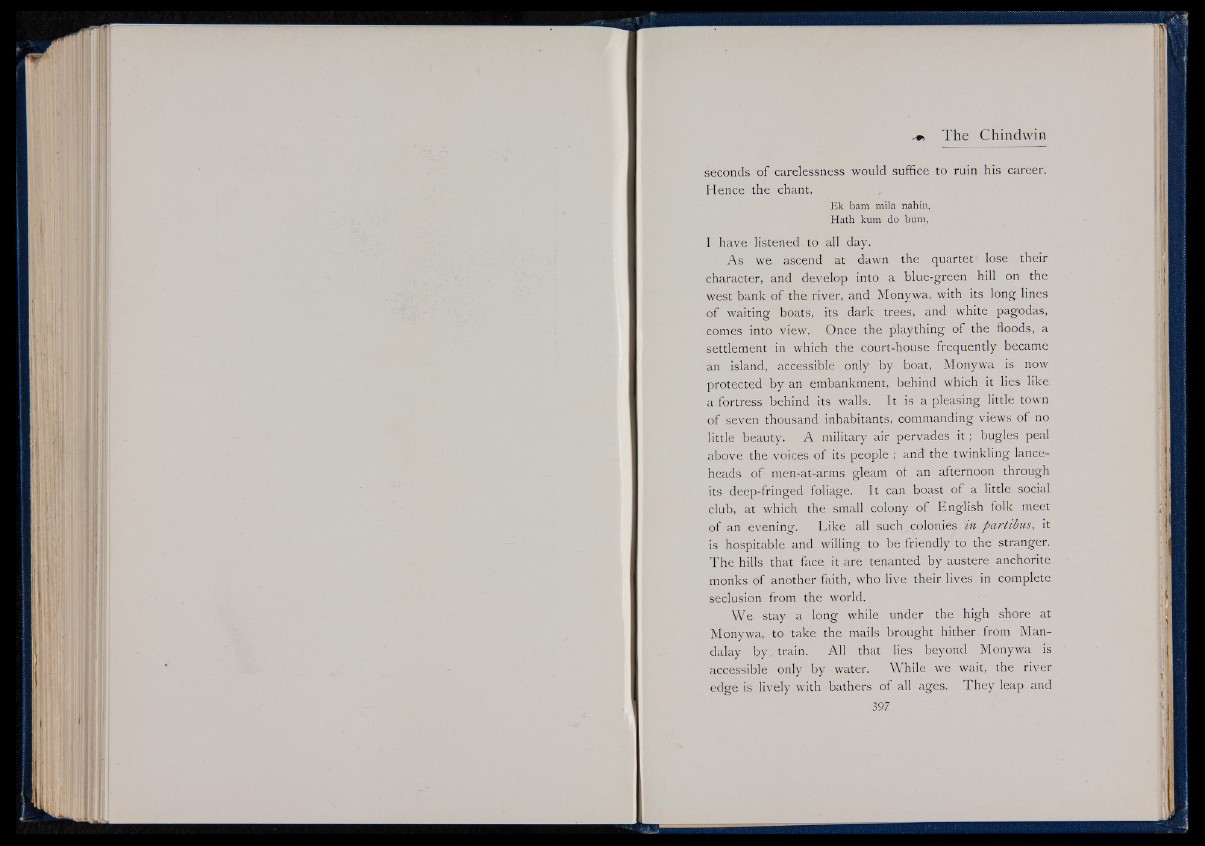
The Chindwin
seconds of carelessness would suffice to ruin his career.
Hence the chant,
Ek bam mila nahin,
Ha th kum do bum,
I have listened to all day.
As we ascend at dawn the quartet1 lose their
character, and develop into a blue-green hill on the
west bank of the river, and Monywa, with its long lines
of waiting boats, its dark trees, and white pagodas,
comes into view. Once the plaything of the floods, a
settlement in which the court-house frequently became
an island, accessible only by boat, Monywa is now
protected by an embankment, behind which it lies like
a fortress behind its walls. It is a pleasing little town
of seven thousand inhabitants, commanding views of no
little beauty. A military air pervades i t ; bugles peal
above the voices of its people ; and the twinkling lance-
heads of men-at-arms gleam of an afternoon through
its deep-fringed foliage. It can boast of a little social
club, at which the small colony of English folk meet
of an evening. Like all such colonies in partibus, it
is hospitable and willing, to be friendly'to the stranger.
The hills that face it are tenanted by austere anchorite
monks of another faith, who live their lives in complete
seclusion from the world.
We stay a long while under the high shore at
Monywa, to take the mails brought hither from Mandalay
by^ train. All that lies beyond Monywa is
accessible only by water. While we wait, the river
edge is lively with bathers of all ages. They leap and